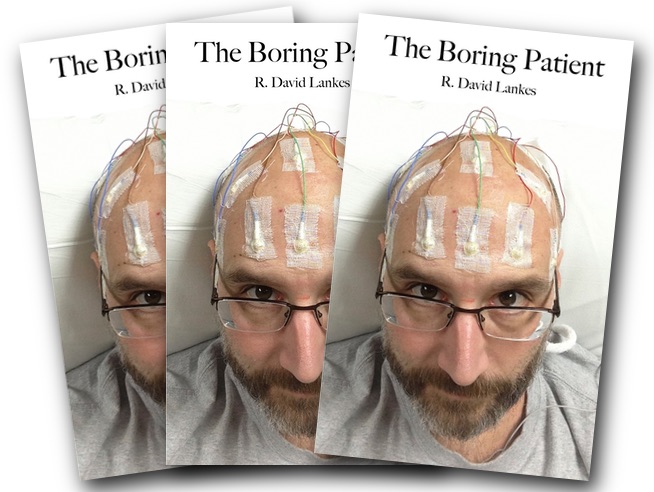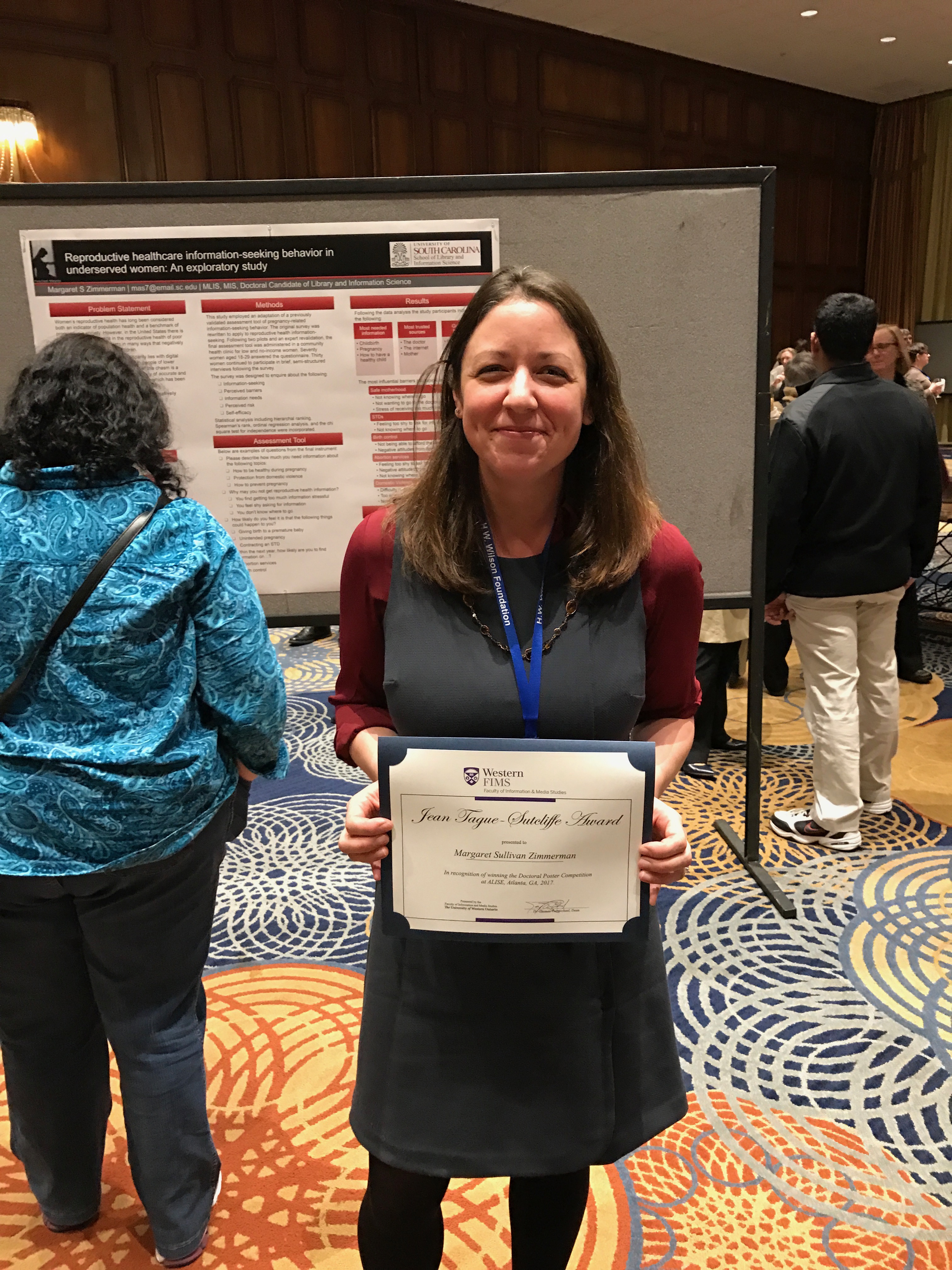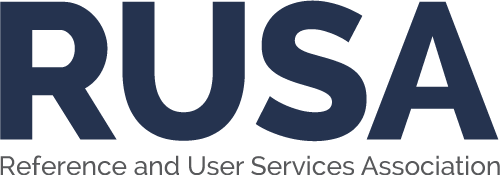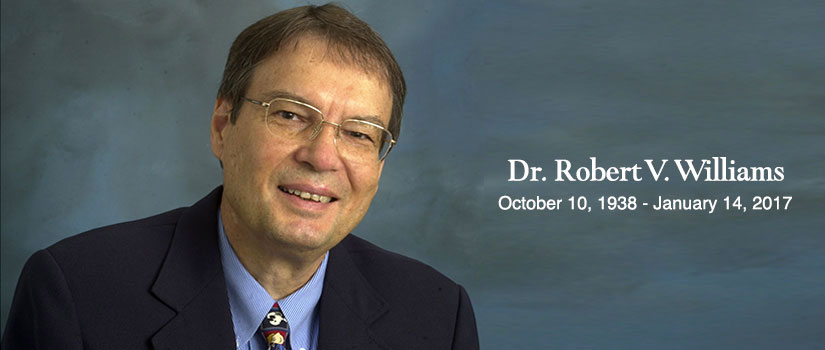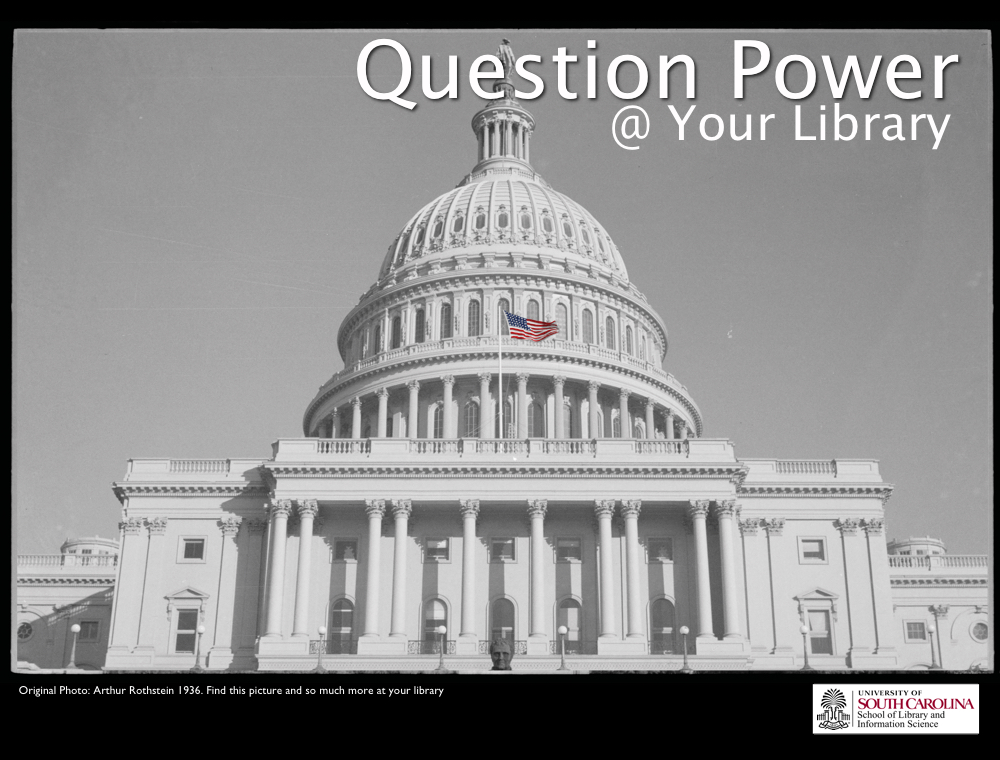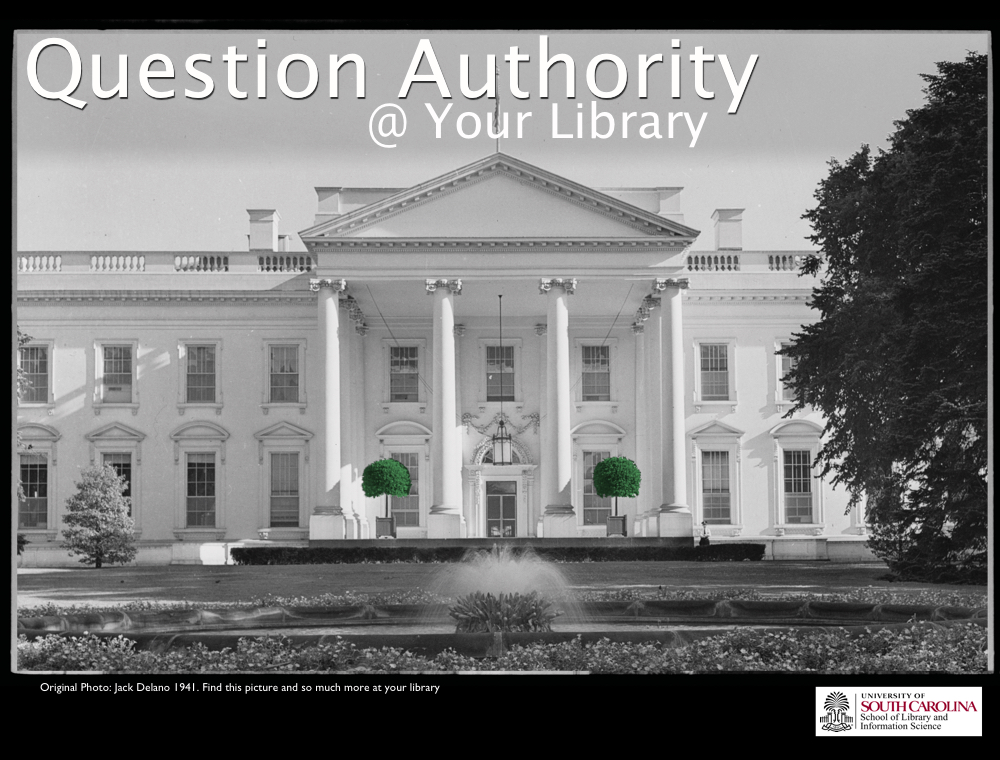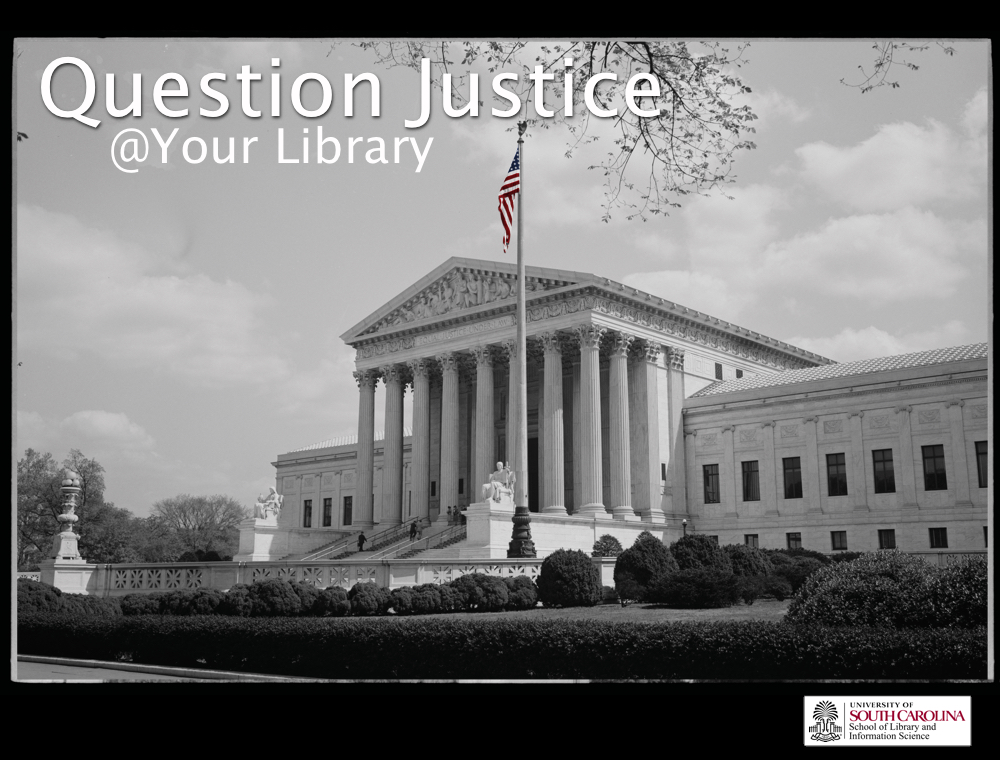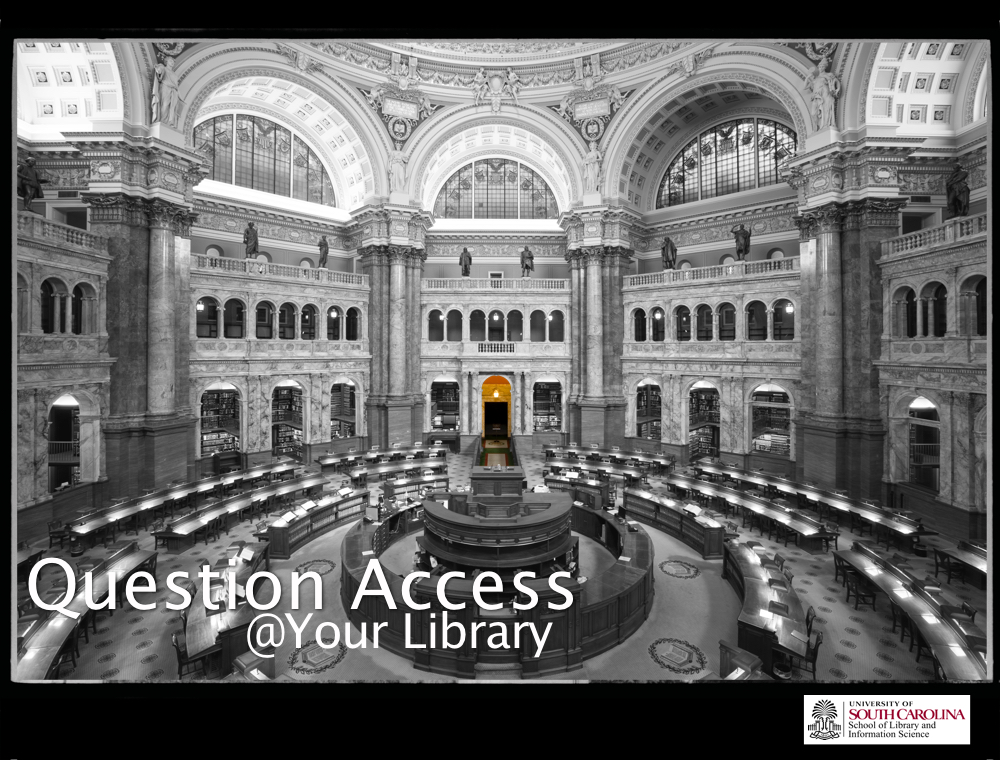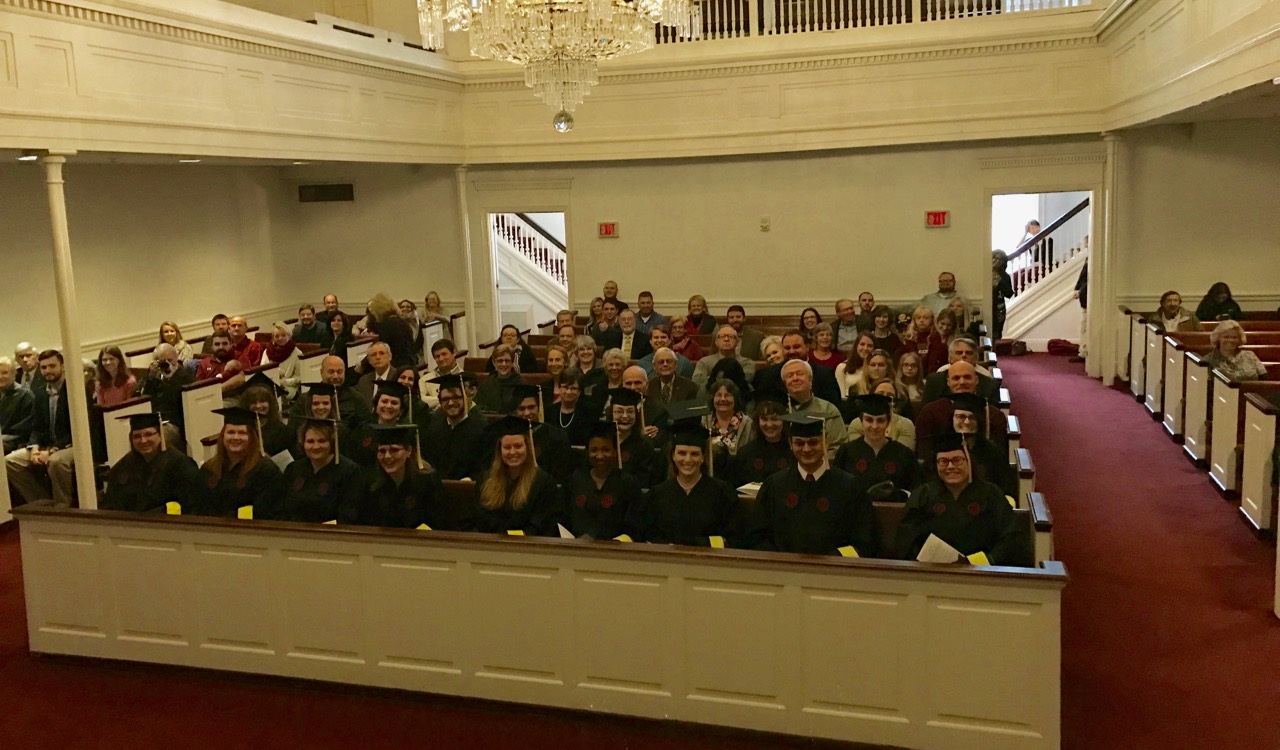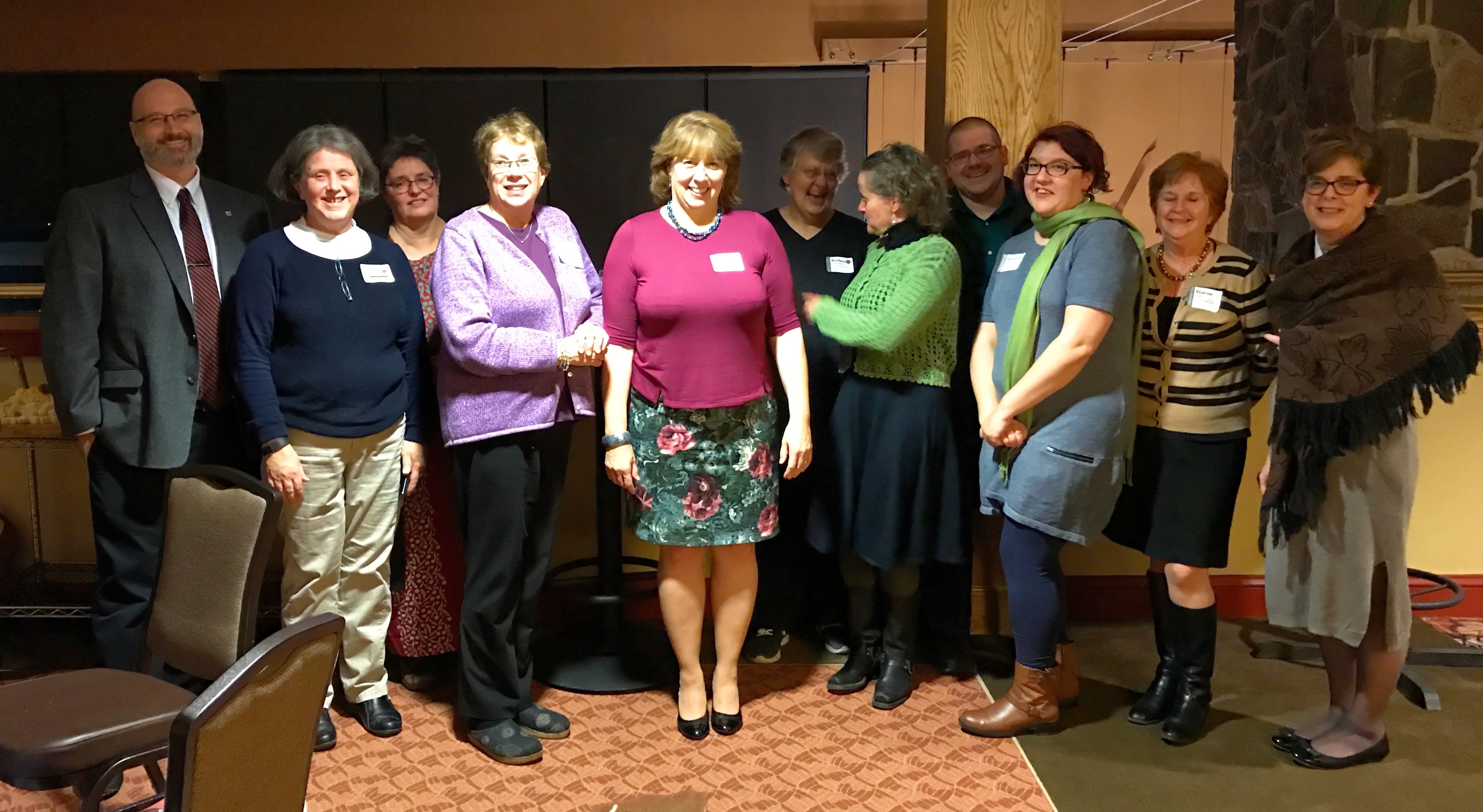The Charleston Conference and Against the Grain do a great series of interviews with Conference Speakers. Last year I was chosen for a “Penthouse Interview.” It is available in its entirety at: David Lankes Penthouse Interview @ 2016 Charleston Conference. It is also available in shorter segments on the Charleston Conference website at: Against the Grain Penthouse Interviews: 2016 Interviews.
Read The Boring Patient Online
In the run up to my 3rd birthday I’ve put my book on my cancer journey fully online. You can still download it or listen to it as well (or buy a print copy).
January Update
The new year has been filled with sadness, joy, and outrage. It was a pivotal month for SLIS and the country, and demonstrated in the most profound way how connected SLIS is as a community.
The Passing of Robert Williams
The month began with the sad news of the passing of “Dr. Bob” Williams. It was clear from the outpouring of remembrances from faculty, alumni, and staff that Dr. Bob’s legacy will be long lived and celebrated. You can read more about this outstanding gentleman scholar here: http://www.sc.edu/study/colleges_schools/cic/library_and_information_science/news/2017/in_memoriam_dr._robert_v_williams.php#.WJDOjrGZMUE
ALISE and Awards
It is perhaps fitting as we were remembering Bob and mourning his loss that we celebrated the school we have become with his help. SLIS had an outstanding presence at this year’s ALISE conference. We had panels and presentations from faculty and doctoral students including Karen Miller, Cantrell Johnson, Heather Moorefield-Lang, Amir Karami, Feili Tu-Keefner, Clayton Copeland, Hassan Zamir, Susan Rathbun-Grubb, Margaret (Sullivan) Zimmerman, and Darin Freeburg. The highlight of the event was Margaret Zimmerman winning the doctoral poster award, and April Dawkins finishing in the top ten posters.
After ALISE we resumed the task of expanding the faculty ranks for our instructor and two tenure-track positions. There is an air of excitement as we see the folks who want to join the work here at SLIS.
Instructional Quality
We have also continued the work of the school. We have re-tasked our committee on Distributed Learning to the Instructional Quality Committee. This committee will review student evaluations and ongoing data to ensure we are constantly working on doing better instruction and do so in an open and transparent way. The committee will also work to ensure any new adjunct faculty have adequate preparation and support to teach online.
SLIS and the Executive Order
And then January held another surprise. With an Executive Order, the federal government began turning away immigrants and legal aliens from several middle eastern countries from our borders. This action has direct impact on current SLIS students, faculty, and alumni. While the University has been responsive in working with affected community members, it is still an area of grave concern.
I am including here a message I shared with our faculty and students last Saturday night and the information sent out by the university for those who have additional questions or concern:
This evening it has become clear that we all have reason to be concerned for those who are at the University, and frankly, in the country legally from abroad. Our classmates, our faculty, our alumni, our staff have seen families divided and immigrants turned away from our borders or held in our airports. Like many of you, I have followed growing legal protests across the country, and welcomed a judicial stay of an executive order whose very legality has been called into question.
Below you will see that University officials have provided some guidance and means of expressing concern. Please, however, do not hesitate to contact me directly. The well-being of our community members is my foremost concern and highest priority. I know that concern is shared by the Dean and all the staff and faculty.
I am saddened beyond belief that any university official has to advise those with legal standing to “not leave the country.” The heart of academia is the free flow of ideas. Ideas know no borders. A search for truth, and a quest to improve society through knowledge should never be threatened by executive order, or legislation. The freedom to teach and learn without the fear of deportation or xenophobia is not a partisan issue; it is not about being liberal or conservative; it is about human rights.
Every day in our classes people of all faiths and religions -Muslim, Jew, Christian, Atheist- learn side by side. Americans, Iranians, Brazilians, Chinese, Indians, Germans, Ugandans have shaped the prosperity of this school, university, and nation. Our graduates build communities in libraries and institutions across the world. We teach all of our students the core values of intellectual honesty, equity, and respect for diversity. We must now demonstrate these values. We have long called libraries havens and must now put truth to these words.
So let me end by asking again to those of you affected by these actions to let me, the faculty, and the staff know how we can help you. You are members of our community, and we are all richer for it.
-David Lankes, Director of the University of South Carolina School of Library and Information Science
Good Evening,
Below you will find the message sent on behalf of Vice Provost Miller to all students from the affected countries in the recent executive order. Further messaging will be sent when we have more information in the upcoming week.
Thank you so much for your commitment to our students at the University.
Jody
Jody Pritt
Director | [email protected]
International Student Services | University of South Carolina
Close Hipp 650 | 803-777-7461 | www.sc.edu/internationalservices
From: PRITT, JODY
Sent: Saturday, January 28, 2017 7:41 PM
Subject: Sent on Behalf of Vice Provost and Director of Global Carolina, Dr. Allen Miller
Dear Students,
As you may know, yesterday President Trump signed an executive order titled “Protecting the Nation from Foreign Terrorist Entry into the United States.” The order suspends entry into the United States by most visa holders from Iraq, Syria, Iran, Sudan, Libya, Somalia, and Yemen. We understand that for many of you this executive order may be unsettling and that you may be worried about your future at USC. As the Vice Provost for Global Carolina, I would personally like to assure you that the University of South Carolina remains committed to your safety, security and success regardless of your religion, ethnicity or national origin.
The executive order is aimed at new entries into the United States, those not yet in the country, and we believe nothing in this executive order will compel you to leave before the expiration of your status. However, we would advise you to not leave the country in the short term in case the executive order creates issues with re-entry. We will provide additional information and guidance soon.
In the meantime, if you have specific questions or concerns, please do not hesitate to contact Jody Pritt, Director of International Student Services at [email protected] .
Sincerely,
Paul Allen Miller
Vice Provost and Director of Global Carolina
Carolina Distinguished Professor of Classics and Comparative Literature
University of South Carolina
In Conclusion
So there was a taste of January. As always, we are looking for your thoughts, feedback, and ideas. Our quest to improve society continues.
Lankes to Deliver 2017 RUSA Keynote
Here is the ALA Press Release (original here):
RUSA’s 2017 Annual Conference President’s Program Keynote Announced
Tue, 01/31/2017
Contact:
Melissa Tracy
Marketing & Programs Specialist
Reference and User Services Association (RUSA)
[email protected]
CHICAGO – David Lankes will be the keynote speaker at the Reference and User Services Association’s (RUSA) President’s Program Forget the Future: Our Time is Now, to be held at ALA’s upcoming Annual Conference in Chicago. David is the Director of the University of South Carolina’s School of Library & Information Science, the 2016-17 Follett Chair at Dominican’s Graduate School of Library & Information Science and recipient of the ALA 2016 Ken Haycock Award for Promoting Librarianship.
As those we serve face growing tensions of nationalism, xenophobia, racism, extremist politics and social media that seems better at building filter bubbles than societies there is a need for a community of professional dedicated to the common good and founded on knowledge. However our communities don’t need us to gate keep a collection, offer up workshops or staff a building. They need us adding value to their lives with them in their homes, classrooms, offices and devices. This President’s Program will explore how reference and user services not only remain relevant, but mobilize to addresses the real challenges of today’s community. The session will also feature two expert responders from the library world, to be announced.
Further scheduling details to come soon. There is no cost for this program, but conference registration is required in order to participate in this event – Registration opens on February 2, 2017 on the ALA Annual Conference website.
About RUSA
The Reference and User Services Association (RUSA), a division of the American Library Association, represents librarians and library staff in the fields of reference, specialized reference, collection development, readers’ advisory and resource sharing. RUSA is the foremost organization of reference and information professionals who make the connections between people and the information sources, services and collection materials they need. Learn more about RUSA.
A Message for International Members of the SLIS Community
This evening it has become clear that we all have reason to be concerned for those who are at the University, and frankly, in the country legally from abroad. Our classmates, our faculty, our alumni, our staff have seen families divided and immigrants turned away from our borders or held in our airports. Like many of you I have followed growing legal protests across the country, and welcomed a judicial stay of an executive order whose very legality has been called into question.
Below you will see that University officials have provided some guidance and means of expressing concern. Please, however, do not hesitate to contact me directly. The well being of our community members is my foremost concern and highest priority. I know that concern is shared by the Dean and all the staff and faculty.
I am saddened beyond belief that any university official has to advise those with legal standing to “not leave the country.” The heart of academia is the free flow of ideas. Ideas know no borders. A search for truth, and a quest to improve society through knowledge should never be threatened by executive order, or legislation. The freedom to teach and learn without the fear of deportation or xenophobia is not a partisan issue; it is not about being liberal or conservative; it is about human rights.
Every day in our classes people of all faiths and religions -Muslim, Jew, Christian, Atheist- learn side by side. Americans, Iranians, Brazilians, Chinese, Indians, Germans, Ugandans have shaped the prosperity of this school, university, and nation. Our graduates build communities in libraries and institutions across the world. We teach all of our students the core values of intellectual honesty, equity, and respect for diversity. We must now demonstrate these values. We have long called libraries havens and must now put truth to these words.
So let me end by asking again to those of you effected by these actions to let me, the faculty, and the staff know how we can help you. You are members of our community, and we are all richer for it.
-R. David Lankes
Director of the University of South Carolina School of Library and Information Science
Good Evening,
Below you will find the message sent on behalf of Vice Provost Miller to all students from the affected countries in the recent executive order. Further messaging will be sent when we have more information in the upcoming week.
Thank you so much for your commitment to our students at the University.
Jody
Jody Pritt
Director | [email protected]
International Student Services | University of South Carolina
Close Hipp 650 | 803-777-7461 | www.sc.edu/internationalservicesFrom: PRITT, JODY
Sent: Saturday, January 28, 2017 7:41 PM
Subject: Sent on Behalf of Vice Provost and Director of Global Carolina, Dr. Allen MillerDear Students,
As you may know, yesterday President Trump signed an executive order titled “Protecting the Nation from Foreign Terrorist Entry into the United States.” The order suspends entry into the United States by most visa holders from Iraq, Syria, Iran, Sudan, Libya, Somalia, and Yemen. We understand that for many of you this executive order may be unsettling and that you may be worried about your future at USC. As the Vice Provost for Global Carolina, I would personally like to assure you that the University of South Carolina remains committed to your safety, security and success regardless of your religion, ethnicity or national origin.
The executive order is aimed at new entries into the United States, those not yet in the country, and we believe nothing in this executive order will compel you to leave before the expiration of your status. However, we would advise you to not leave the country in the short term in case the executive order creates issues with re-entry. We will provide additional information and guidance soon.
In the meantime, if you have specific questions or concerns, please do not hesitate to contact Jody Pritt, Director of International Student Services at [email protected] .
Sincerely,
Paul Allen Miller
Vice Provost and Director of Global Carolina
Carolina Distinguished Professor of Classics and Comparative Literature
University of South Carolina
The Passing of Dr. Robert V. Williams
Today is a sad day for the University of South Carolina with the passing Bob Williams.
Dr. Robert V. Williams, or Dr. Bob as so many of us called him with affection, passed Saturday night, January 14, 2017.
Dr. Bob created the archival studies program, was an architect of the library school/history joint degree, and designed the undergraduate program in Information Science for the School of Library and Information Science and was most proud when our first students matriculated. He supported the program with funds for research awards and scholarships. He was always available for students and faculty. He received the prestigious Watson Davis award from the Association of Information Science and Technology and was the primary supporter for the History of Information Science project. His students adored him. His friends and colleagues called him true blue and all of us will miss this one of a kind “Gentleman Scholar.”
The details of any memorial service plans have not yet been released by the family, but we will post them as soon as we know.
Dr. S.K. Hastings, and Dr. R. David Lankes
Question Posters Redux
For several years I’ve been calling for the creation of Question Posters (vs Read Posters). Well, it turns out that I am now in charge of a school with a marketing budget.
So here’s my question (please use the comments below): would you use/hang these posters? They would by 25″x19″
The hope is that these would be the first theme, and we can add other themes.
Please consider these as drafts BTW.
SLIS Hooding Welcome
[The following a copy of my welcome for the SLIS Hooding Ceremony]
Welcome all. Graduation represents a moment in time. It is a moment of gratitude. Graduates, I ask you to take a moment to recognize those who helped you get to this point, be they in the audience or on this stage.
One person I know I am grateful is my predecessor Dr. Sam Hastings who has sent the following message:
Dear Graduates,
I am so sorry to miss this great event but wanted you to know that I am thinking about you and sending buckets of congratulations! We are very proud of you and know that you will do great things in your lives. Of course, we expect you to protect everyone’s right to read and get the information they need to be free and productive. Your degree puts you in the elite group of Americans with master’s degrees. 16 % of our population. So go forth, remember that you will always have a home with us and as our alumni, you have earned the right to be a little “Cocky!” I hope you and your families enjoy today.
All the best,
Dr. Sam
This is also a moment for us to express our gratitude for you. You are entering professions with skills that span from storytime and the preservation of our history to the support of mankind’s exploration of the universe. What’s more you do this at a time of great change and great need. And for that we are grateful, for indeed at this time our society needs you more than ever.
December Update
[As director of the University of South Carolina School of Information and Library Science I send out a monthly update to faculty, students, alumni, and partners. This month seemed like a good time to sharing them here a well.]
It is time for a December update on the school. Today marks the end of the Fall semester, and the halfway point for my first year as director. Given the end of the year and commencement is coming pardon me if I get a bit reflective in this update.
November and December have been busy months for SLIS. Here is just a taste of what have been up to:
- Darin Freeburg had an article accepted to the Journal of Information Science.
- Jennifer Arns presented at the Copenhagen Business School at the Design Conference.
- Heather Moorefield-Lang had two proposals accepted at ALA Conference. By the way she is also running for AASL region 4 director, so if you are an AASL member in Kentucky, North Carolina, South Carolina, Tennessee, Virginia, or West Virginia please consider supporting her.
- Cocky’s Reading Express continues to keep rolling and is the subject of a piece for ETV’s Palmetto Scene for their work with SCE&G. Also, our own doctoral candidate Liz Hartnett will join the South Carolina Center for Children’s Books and Literacy in the new year.
This month caps off a very busy semester for SLIS. Here is list of some of the things we’ve been working on this semester:
- Began the search for 4 new members of the faculty.
- Prepared for our ALA Accreditation by drafting a pretty hefty program study.
- Celebrated the 10th Anniversary ALL Awards and recognized champions for literacy in South Carolina.
- Raised the visibility of research at SLIS highlighting our research related to the 1,000 year Columbia Flood, our international work, and posting a major presence at conferences such as IFLA.
- Built strong collaborations with the Honors program and the Schools of Education and Engineering.
- Made improvements to Davis College including better lighting and an upgraded teaching lab.
- Continued to work to grow our undergraduate program and improve all of our degrees with your feedback.
Not bad for a semester. And we have no plans to slow down in the new year.
I also had a great trip to Maine for the Maine Library Association Conference in November. A shout out to our Maine alums (and current students). I learned a lot about the history of bringing the South to the North.
At the conference, I talked about how these days of fake news and an unprecedented presidential election make it an extremely important time for librarians and librarianship. You can hear the whole thing here: https://davidlankes.org/?p=9050
We have all been doing a lot of thinking about these kinds of issues as we work through our Knowledge School Initiative. Through listening sessions and site visits to iSchools it is becoming more and more apparent that it is time to move the conversation of Library and Information Science as a field forward.
For too long we have participated in a semantic game with librarianship and information science. Are they separate? Is information science the evolution of library science or the transferrable parts outside the context of libraries?
Here is where I keep finding myself: library science is the soul of information science and must act as the conscience. It is the necessary question about why we organize and how we should use our knowledge, technology, and tools. It is the quest for social justice in social science.
The knowledge school we are envisioning at SLIS – that we are building in South Carolina with our students, staff, faculty, alumni, and partners – is one grounded in great scholarship that makes a difference in society. As a scholarly community, it is our obligation to identify important issues in our communities, to investigate them, and then to make our communities better with what we find.
That is the signature we have at SLIS. I am only the latest steward of a tradition that sees the role of academia to be an engine of optimism and positive change. It is a tradition that sees illiteracy and works to bring the right of reading to all. It is the tradition that sees the importance of faith communities to community knowledge and seeks to ensure those communities get beyond echo chambers of like ideas. It is a tradition that has examined the history of our profession in social movements and seeks to keep that spirit of activism alive. We marry statistics and data science with marches on the capital. We prepare students in a classroom and on the front lines. We use busses, and YouTube, and journal articles to not only hold up a reflection to our society, but to spur action.
Whether you celebrate Christmas, or Hanukkah, or Kwanzaa, or simply enjoy the bright lights in the dark winter day I wish you peace, and rest, and rejuvenation. Take this time to seek out and model the best of our values. You are part of an important movement and we have need of each and every one of you in the New Year.
Data, Information, & Knowledge: The Right Profession For The Right Time
“Data, Information, & Knowledge: The Right Profession For The Right Time” 2016 Maine Library Association Conference. Newry, ME.
Abstract: The 2016 presidential election demonstrates the weaknesses in seeing data and information as substitutes for true knowledge. Librarians by embracing a knowledge and a community approach are perfectly situated for moving the country ahead in the coming years.
Slides: Slides in PDF
Audio:
Data, Information, & Knowledge: The Right Profession For The Right Time from R. David Lankes on Vimeo.

